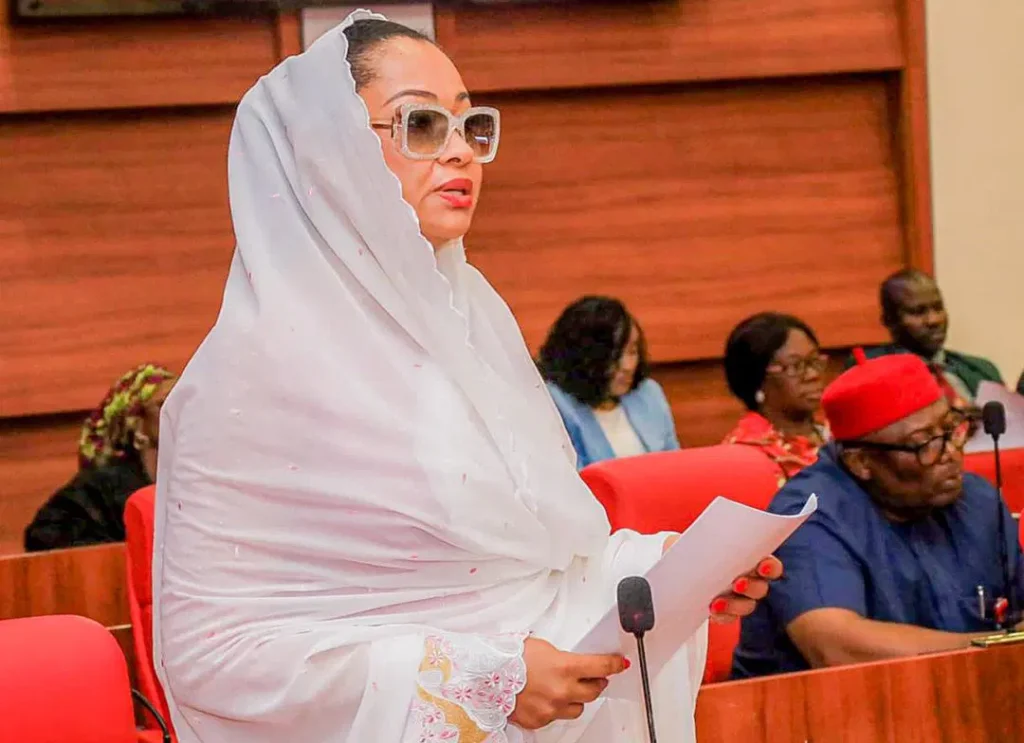In a dramatic turn of events at the Federal High Court in Abuja, Justice Obiora Egwuatu has voluntarily withdrawn from presiding over the case filed by suspended Kogi Central Senator Natasha Akpoti-Uduaghan against the Senate leadership. This development comes amidst growing tensions between the judiciary and legislative arms of government, raising fresh questions about the independence of Nigeria’s democratic institutions.
The Recusal Decision
On Tuesday, March 25, 2025, Justice Egwuatu stunned courtroom observers when he announced his recusal at the beginning of what was scheduled to be a hearing session. The judge cited a petition from Senate President Godswill Akpabio challenging his impartiality as the primary reason for his decision. In a brief ruling, Justice Egwuatu stated that the case file would be returned to the Chief Judge of the Federal High Court for reassignment to another judge.
This judicial withdrawal marks a significant moment in the ongoing legal battle between Senator Akpoti-Uduaghan and the Senate leadership. Legal analysts suggest the recusal could potentially delay proceedings by several weeks as a new judge familiarizes themselves with the complex constitutional issues at stake.
Background of the Case
The controversy stems from disciplinary actions taken against Senator Akpoti-Uduaghan by the Senate Committee on Ethics, Privileges, and Public Petitions. The lawmaker had been accused of violating Senate rules, though the specific allegations remain undisclosed to the public.
On March 4, Justice Egwuatu had issued an interim order halting the Senate’s disciplinary proceedings against the senator. In his ruling, the judge directed that the investigative process be paused until the determination of the substantive suit filed by Akpoti-Uduaghan. The court also granted the senator permission to serve court processes through substituted means, including publication in national newspapers, after demonstrating difficulties in serving the defendants conventionally.
Constitutional Clash Between Arms of Government
The case took a more contentious turn when the Senate Committee proceeded with its sitting despite the court order, ultimately imposing a six-month suspension on Akpoti-Uduaghan. This action prompted legal debates about the separation of powers doctrine and the extent of judicial oversight over legislative proceedings.
Senate President Akpabio, through his legal team led by Senior Advocate of Nigeria Kehinde Ogunwumiju, vigorously challenged the court’s jurisdiction to intervene in legislative affairs. The Senate’s position argues that the National Assembly enjoys certain constitutional immunities and privileges regarding its internal procedures.
Legal Implications of the Recusal
Justice Egwuatu’s decision to recuse himself raises several important legal questions:
- Judicial Independence: Whether external petitions should influence judicial assignments in high-profile political cases.
- Separation of Powers: The appropriate boundaries between judicial oversight and legislative autonomy.
- Due Process: Whether the Senate followed proper procedures in disciplining one of its members.
- Rule of Law: The implications of one arm of government disregarding court orders.
Constitutional law expert Professor Nnamdi Aduba commented: “This situation presents a classic tension in our democracy. While the legislature has the right to regulate its internal affairs, citizens including lawmakers also have the right to seek judicial review when they believe their rights are being infringed.”
Political Ramifications
The case has taken on significant political dimensions, with various groups interpreting the developments differently:
- Supporters of Senator Akpoti-Uduaghan view the Senate’s actions as political persecution, citing her history of challenging the status quo.
- Senate leadership maintains they are simply upholding legislative decorum and rules of procedure.
- Civil society organizations have raised concerns about potential erosion of democratic checks and balances.
Political analyst Aisha Yusuf noted: “This isn’t just about one senator’s suspension. It’s becoming a litmus test for Nigeria’s institutional maturity in handling conflicts between different arms of government.”
Next Steps in the Legal Process
With Justice Egwuatu’s recusal, the case enters a new phase:
- The Chief Judge must assign the matter to another judge, which could take several days or weeks.
- The new judge will need to review all previous filings and rulings to determine how to proceed.
- Key issues to be resolved include:
- The validity of the Senate’s disciplinary actions
- The constitutionality of the suspension
- Potential consequences for disregarding court orders
- Both parties may file fresh applications before the new judge.
Broader Implications for Nigerian Democracy
This case highlights several critical issues in Nigeria’s democratic development:
- Institutional Conflict Resolution: The need for clearer mechanisms to resolve disputes between government branches.
- Judicial Authority: Questions about whether court orders should be binding on all arms of government.
- Legislative Accountability: The balance between legislative independence and accountability to constitutional provisions.
- Political Tolerance: How dissent is handled within legislative bodies.
As Nigeria continues to strengthen its democratic institutions, cases like this serve as important reference points for defining the boundaries of power and the mechanisms for resolving inter-branch disputes.
The coming weeks will be crucial in determining whether this conflict will be resolved through established legal channels or whether it will escalate into a more significant constitutional crisis. All eyes now turn to the Chief Judge’s office to see how quickly a new judge can be assigned and whether the fresh judicial perspective will bring clarity to this complex legal and political standoff.
